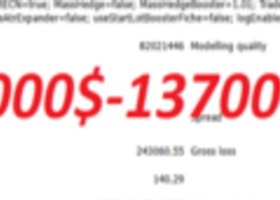
Copper drops to fresh six-year lows on global cues; Chinese stocks end lower amid IPO worries
On Monday copper prices fell to the lowest level since May 2009, as the possibility of higher interest rates in the U.S., a broadly stronger greenback and slower global economic growth, especially in China, weighed on the the non-ferrous metal market.
Comex copper for December delivery lost 1.74%, to trade at $2.024. It earlier fell to $2.001, a level not seen in more than six years. The March contract slumped 3.9 cents, or 1.92%.
Meanwhile, three-month copper on the London Metal Exchange hit an intraday low of $4444.75 a metric ton, the lowest level since June 2009, before rising back to $4,481.25, 1.64% lower.
Prices of the red metal have lost nearly 30% since May amid fears of a China-led global economic slowdown.
On Monday Asian stock markets ended mixed. The S&P/ASX 200 rose 20.3 points, or 0.4%, to 5276.4, its highest close since Oct. 28.
The Shanghai Composite Index closed down 0.55% amid nervousness about new firms listing following a four-month moratorium for the IPO market. Hong Kong’s Hang Seng Index lost 0.4%. South Korea’s Kospi was up 0.7%. Markets in Japan are closed for holiday.
Consumer stables stocks on the S&P ASX 200 rose 2%, leading the market, and offsetting 1% and 0.4% drops, respectively, in materials and energy shares.
In China, 10 companies are expected to list soon on the Shanghai and
Shenzhen stocks exchanges, making investors jittery about capital
leaving existing shares. The authorities put the IPO market on hold
during the summer when it was trying to stop a collapse in shares.
The Wall Street Journal says that state funds recently sold shares, after being tasked to prop up the market with buying since July. China Securities Financial Corp., which owns shares in nearly half of all listed companies, has reduced holdings in around 20 stocks and stopped buying new shares since October, according to a recent research note by brokerage Huatai Securities.
Regulations making it more expensive for local investors to buy shares using money borrowed from brokerages took effect on Monday. The Shanghai and Shenzhen stock exchanges announced earlier in the month that investors will be able to borrow an amount equal to the funds in their investment accounts; the previous limit was twice that amount.
On Monday morning the government fixed the onshore Chinese yuan at 6.3867 to the dollar - the lowest level since late August, days after Beijing devalued the currency and triggered a selloff in global financial markets. The currency can trade 2% above or below that level.


